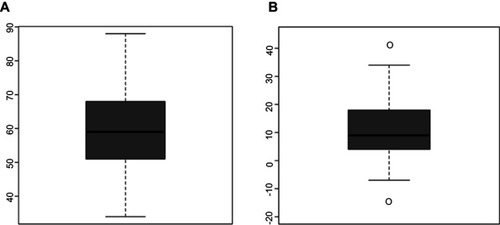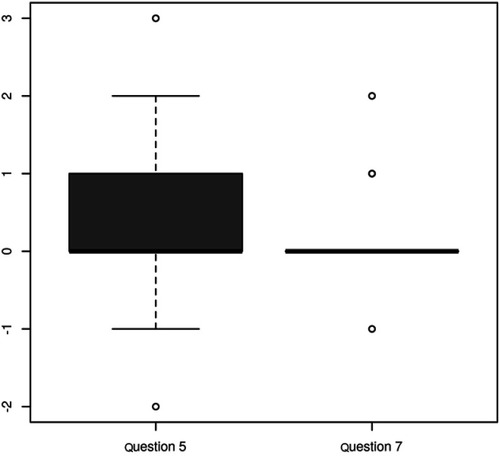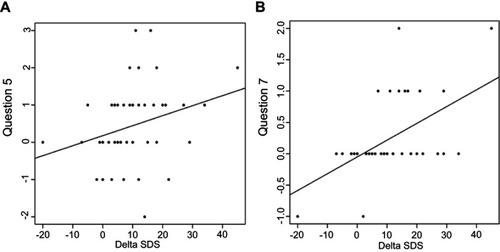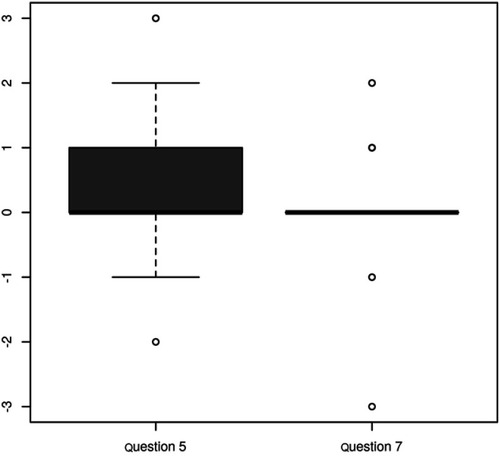Figures & data
Table 1 Demographic and clinical characteristics
Figure 1 The scale of affective disorders in the file.
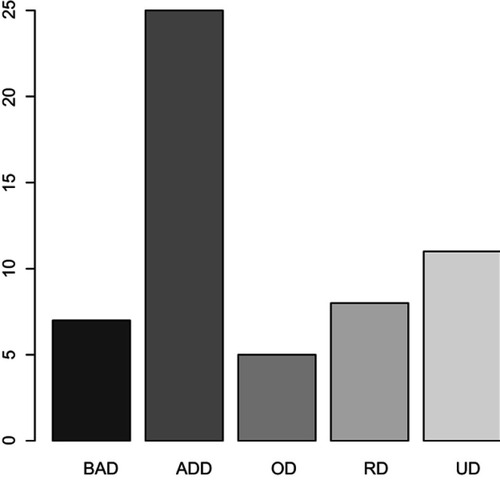
Table 2 Medication
Table 3 SDS Index before and after stimulation
Table 4 Correlation between the change in question 5 and question 7 for the file without unusually long stimulation: The test of correlation: p=0.009

